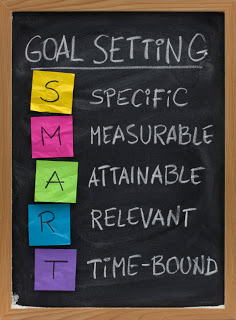 Taking Small Steps to Achieve Larger Goals
Taking Small Steps to Achieve Larger Goals
A well-organized weekly plan can truly make the difference between a growing profitable establishment and a drifting restaurant. Whether you are running a small “mom & pop restaurant”, a high volume casual restaurant, a theme restaurant, a fine dining restaurant, any food service venue or bar, the fact is the same… You must be organized and have measurable systems in place to be successful. Another truth is, “It doesn’t happen overnight”. In order to reach those long term goals, restaurant owners and operators should focus on likeminded and beneficial short term goals.
Here is a concise guide to help organize your restaurant’s weekly goals.

Weekly Planning Guide
At TRG Restaurant Consulting, we provide operational programming and assessments to restaurants of all sizes. These are extremely beneficial to restaurant owners. The one thing most restaurants share in common is their goals to lower costs, increase sales and generally streamline operations. Below are the steps needed to organize your customized plan.
Step 1: Review reports regularly
It is not enough to create annual sales and profit goals, and then hand them off to your managers. You need to determine the regular, incremental tasks that support the larger goals and communicate a clear plan to the management team.
Run a “snapshot” or “at a glance” report to review with management staff on a regular bases. Most restaurant POS systems provide this feature via a dashboard or DSLR (daily sales and labor report).
Step 2: Define your goals
Each restaurant operates differently and adjustments may be required, but a good weekly planning guide can be created, using the following narrative as a starting point.
Sales goal by all appropriate departments:
- Restaurant
- Bar
- Banquets, Catering or Private Parties
- To-Go, Delivery, Merchandising or additional Revenue Centers
Controllable cost items that affect profitability:
- Food Cost
- Beverage Cost
- Labor Cost
- Direct Operating Costs (linen, repairs and maintenance, uniforms, utilities, etc.)
Marketing projects and tasks the managers are expected to execute:
- Advertising and Promotion
- Community Service Projects, PR
Step 3: Checklist
Add a checklist for management follow-up and reporting on assigned tasks.
Step 4: Weekly Meeting
Schedule a specific day and time for a weekly meeting. Set procedures and develop some weekly short-term goals.
By carrying out a plan that includes categories of responsibility as listed above, managers have a clearer picture of the goal and a specific game plan. They are easier to motivate because they can measure success step by step.
Once You’ve Established Weekly Goals, Drill Down and Set Daily Tasks

What’s more impacting to your restaurant? Remembering the previous year’s sales goal, customer count total, or exact food cost percentage or knowing exactly how many customers have been served so far this week, the check average, sales goals, confirmed private parties and shift labor costs? If you said the latter, you are correct.
While it is important to review historical data, it is more important to properly forecast, set goals and be proactive in real time.
Simply put, empower your management team to easily measure their success regularly.
Example Daily Programming:
Monday
- Complete weekend paperwork, i.e., invoices, daily checkouts, bank deposits, etc.
- Prepare liquor, beer and wine orders.
- Assist kitchen manager/chef with food and chemical orders.
- Prepare weekly assessment and manager meeting agenda for next day’s meeting.
- Confirm private parties for the week.
Tuesday
- Receiving day. Compare invoices to purchase orders.
- Manager meeting 3 p.m. to 4 p.m.
Wednesday
- Every other Wednesday call in payroll.
Thursday
- Employee schedules completed, costed out, and posted by 2 p.m.
- Assist kitchen manager/chef with weekend orders.
Friday
- Complete Monday-Thursday paperwork and send to office with copies of invoices, daily checkouts and bank deposits.
- Receiving day; check invoices against purchase orders.
Saturday
- Manager special project day, repair and maintenance items, review staff in training, ensure employee files are complete.
Sunday
- Do weekly inventory of prime cost items, food and liquor.
Need More Help?
Contact TRG Restaurant Consulting for a free consultation.





